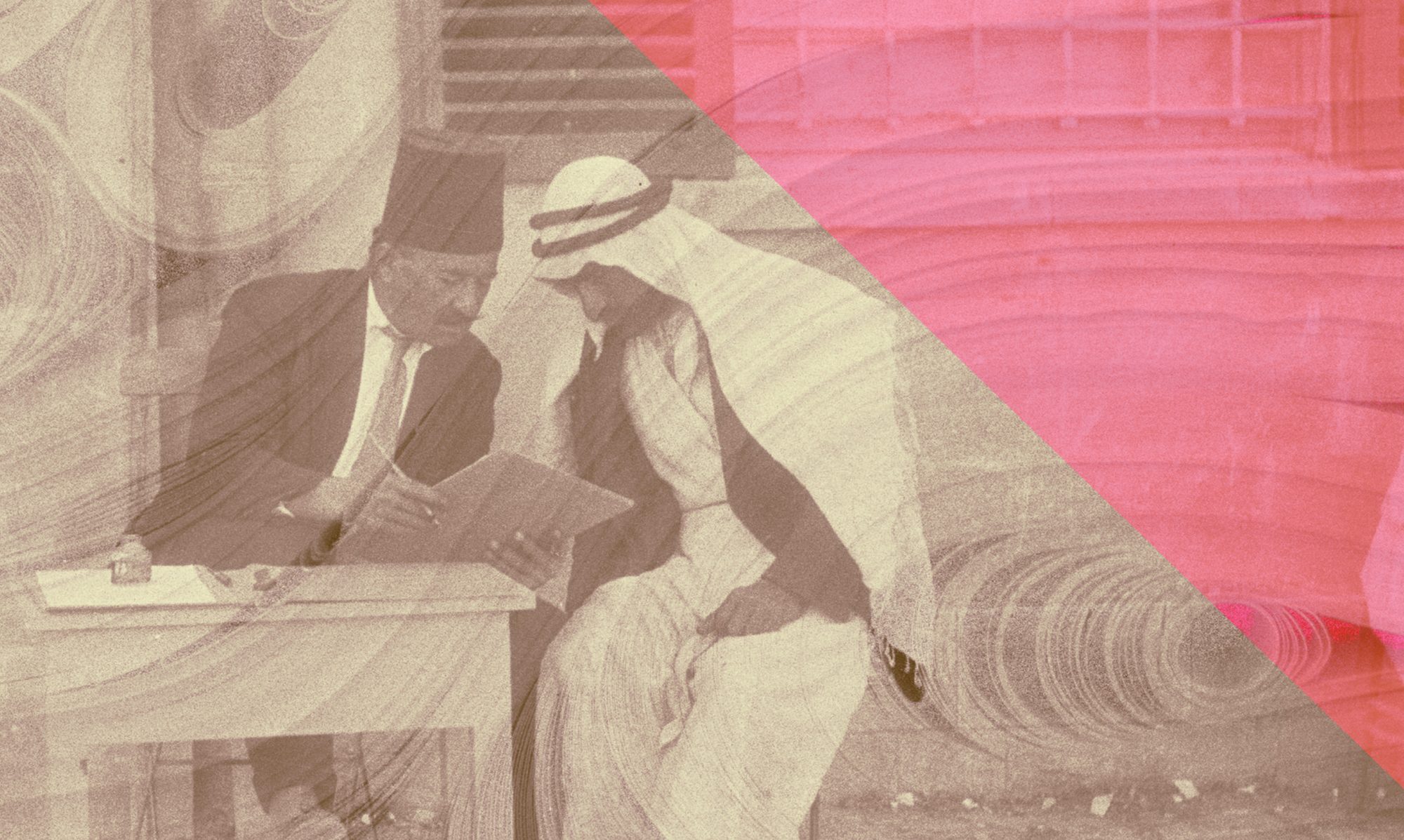Keynote speaker:

Keith Brown is Professor of Politics and Global Studies and Director of the Melikian Center: Russian, Eurasian and East European Studies at Arizona State University. His work explores political participation, and pathways into and out of violence, especially in the 20th century Balkans. He is the author of Loyal Unto Death: Trust and Terror in Revolutionary Macedonia (Indiana University Press 2013) and more recent articles include Order, Reputation and Narrative: Forms of State Violence in Late Socialist Macedonia (EHQ 2015) and Burek, Da! Sociality, Context and Idiom in Macedonia and Beyond, in David Montgomery (ed.) Everyday Life in the Balkans (Indiana University Press, 2018).
Panelists:
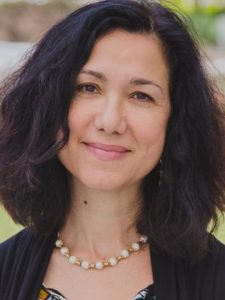
Golfo Alexopoulos is interim chair of the History department at the University of South Florida (USF) in Tampa, founding director of the USF Institute on Russia, and professor of Russian/Soviet history. She is the author of Illness and Inhumanity in Stalin’s Gulag and Stalin’s Outcasts: Aliens, Citizens and the Soviet State, plus journal articles on complaints and petitions, including: ‘Victim Talk: Defense Testimony and Denunciation under Stalin’ in Law and Social Inquiry and ‘The Ritual Lament: A Narrative of Appeal in the 1920s and 1930s’ in Russian History/Histoire Russe. She received her PhD in History from the University of Chicago.

Julie Billaud is a Lecturer in Anthropology at the University of Sussex. Her research interests are in the area of legal and political anthropology, with a specific focus on Afghanistan, gender, Islam, international governance, humanitarianism and human rights. In addition to her on-going research on the United Nations Universal Periodic Review carried out in collaboration with Jane Cowan, she is conducting an ethnographic study of the International Committee of the Red Cross. She is the author of Kabul Carnival: Gender Politics in Postwar Afghanistan (University of Pennsylvania Press, 2015). She is also a co-founder and editor of Allegralaboratory.net.

Jane K. Cowan is Professor of Anthropology at the University of Sussex and (for 2018-2019) Jane and Aatos Erkko Visiting Professor in Studies on Contemporary Society at the Helsinki Collegium for Advanced Studies. While her early work investigated gender, power, identity and the body, she is currently exploring the nexus of rights claiming and international governance in two sites: League of Nations supervision of minorities treaties and, with Julie Billaud, the UN human rights monitoring mechanism, the Universal Periodic Review. Her publications include Dance and the Body Politic in Northern Greece (1990), Macedonia: The Politics of Identity and Difference (2000), Culture and Rights: Anthropological Perspectives (with M. Dembour and R. Wilson, 2001) and ‘Between learning and schooling: The politics of human rights monitoring at the Universal Periodic Review’ (with J. Billaud), Third World Quarterly 36(5) 2015.

Marie-Bénédicte Dembour is Professor of Law and Anthropology at the University of Brighton. She is the author of numerous publications, including the seminal Culture and Rights: Anthropological Perspectives (2001) (co-edited with Jane Cowan and Richard Wilson), Who Believes in Human Rights? Reflections on the European Convention (2006) and the award-winning monograph When Humans Become Migrants: Study of the European Court of Human Rights with an Inter-American Counterpoint (2015). Her human rights four-school model (2010) is one of the most downloaded articles of Human Rights Quarterly. She has recently been awarded an ERC advanced grant to work on a research project entitled ‘DISSECT: Evidence in International Human Rights Adjudication’.

Andrew Graan is Lecturer in Social and Cultural Anthropology at the University of Helsinki. A cultural and linguistic anthropologist, his research examines the cultural politics of the public sphere in Macedonia. He earned his Ph.D in anthropology from the University of Chicago in 2010. His current project, ‘Brand Nationalism: Neoliberal Statecraft and the Politics of Nation Branding in Macedonia’, is supported by the Finnish Cultural Foundation and the Kone Foundation. The project examines how the coordinated efforts to regulate public communication that are found in nation branding projects constitute a wider program of economic and social governance.

Miia Halme-Tuomisaari is a legal anthropologist specialising in the history of human rights and the analysis of the contemporary human rights. Docent (Adjunct Professor) in International Law at the University of Turku, and co-founder of Allegralaboratory.net and Allegra Lab Helsinki, she is currently a Core Fellow at the Helsinki Collegium for Advanced Studies. Her publications include Human Rights in Action: Learning Expert Knowledge (2008, Brill), Revisiting the Origins of Human Rights (co-edited with Pamela Slotte, Cambridge University Press 2015) and ‘Meeting the World at the Palais Wilson’, in Palaces of Hope, edited by Ron Niezen & Maria Sapignoli, CUP 2017.
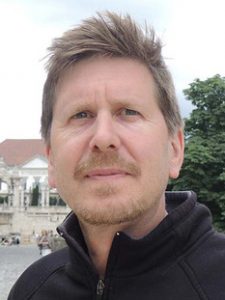
Matthew Hull is Associate Professor of Anthropology at the University of Michigan. His research focuses on the nexus of representation, technology, and institutions. His book, Government of Paper: The Materiality of Bureaucracy in Urban Pakistan (University of California Press, 2012), examines governance as a semiotic and material practice. He is currently working on the history and theory of the modern corporation as a governance institution, and police communication systems and lotteries in India.
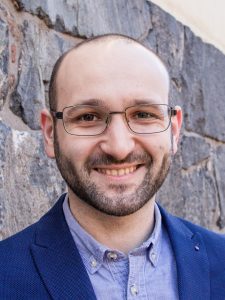
Dmytro Khutkyy is Kone Foundation Fellow at the Helsinki Collegium for Advanced Studies, University of Helsinki, in Finland, National Researcher at the Independent Reporting Mechanism, Open Government Partnership initiative and Expert at the Coalition for the Advance of e-Democracy, in Ukraine. He obtained his PhD in Sociology at the Institute of Sociology of the National Academy of Sciences of Ukraine. After that he participated in several international programs in Austria, Estonia, Germany, and the United States, including the Fulbright Faculty Development Program. Dmytro Khutkyy conducts research, training, and communication to promote civic participation, good governance, and institutional change.
Susanne Melde is a senior analyst at the International Organization for Migration’s Data Analysis Centre in Berlin, Germany, but is attending in a personal capacity. She received her PhD from Sussex University in 2017 on Argentina’s human rights-based migration policy, as part of which she analyzed a friendly settlement that helped reform the former migration law. Her research interests include migration governance in countries of the global South.

Parvathi Menon is a PhD candidate at the Erik Castren Institute of International Law and Human Rights, University of Helsinki. She has LL.M.s from Harvard Law School and the London School of Economics. She was previously a lecturer in public international law at the National Law School of India University, Bangalore, and at the University of The Gambia. Her PhD is a historical study of the meaning of protection in International Law under the British Empire; her project studies protection as a legal measure through the course of three non-homogenous phases of colonial ordering, focusing on specific imperial locations of the British Empire from 1797 to 1932: the slave colony of British Trinidad, the colonial protectorates of British West Africa and the mandated territory of Iraq. She studies the adaptation of the discourses of protection to fit shifting schemes of imperial administration within the framework of international law’s history of humanitarian aspirations and its authoritarian underpinnings.

Agathe Mora teaches in the Anthropology Department at the London School of Economics and Political Science. She is the Editor-in-Chief of Allegra Lab and a Research Associate at the Graduate Institute of International and Development Studies. Her work combines legal and political anthropology to analyse the workings of international organisations, first at the UN-mandated Kosovo Property Agency (KPA) and the European Rule of Law Mission in Kosovo (EULEX), and more recently at the Office of the High Commissioner for Human Rights (OHCHR) in Geneva. In both cases, her research is concerned with the considerable work required to promote specific, seemingly self-evident ideas of human rights and the rule of law, and the often unexpected effects and inherent contradictions of such processes in complex political settings. She is currently working on a monograph based on her research on property restitution in post-war Kosovo.
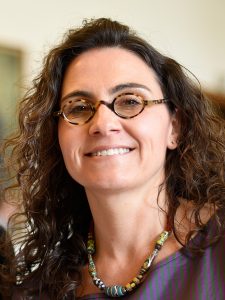
Dr. Nil Mutluer, (PhD, Gender Studies, Central European University, Budapest) is currently the Einstein Foundation Senior Scholar in the Diversity and Social Conflict Department at Humboldt-Universität zu Berlin, Germany, where she was an interim professor of Public Law and Gender Studies Department in 2018. Until February 2016 she was the Head of Sociology Department at Nişantaşı University, but after she signed the Peace Petition titled ‘We Will Not Be Party to this Crime’ the university administration fired her from her position. Then, she was awarded the Philipp Schwartz Research Fellowship of the Alexander von Humboldt Foundation (2016 – 2018). She is the editor of the books, States of Gender: The Intersectional Borders of Gender in Turkey (2008) and States of National: Citizenship and Nationalism, Are We Aware? (2008). She has published extensively in the areas of diversity (gender, ethnic and religious), nationalism, migration, memory studies and Turkish politics in various academic and non-academic journals and newspapers. Her recent publications include ‘The intersectionality of gender, sexuality, and religion: Novelties and continuities in Turkey during the AKP era’ in Southeast European and Black Sea Studies (2019); ‘Diyanet’s Role in Building the ‘Yeni (New) Milli’ in the AKP Era’ in European Journal of Turkish Studies (2019) and ‘Exile and Plurality in Neoliberal Times: Turkey’s Academics for Peace’ in Public Culture (2019).

Leyla Neyzi is Professor in the Faculty of Arts and Social Sciences at Sabanci University in Istanbul. Her areas of research include oral history and memory studies in conflict-affected settings, minorities, nationalism, youth culture, Kurdish studies, ethnography of Turkey and its diaspora. Her multimodal research projects and publications can be viewed at http://myweb.sabanciuniv.edu/neyzi/. Her article, “National Education Meets Critical Pedagogy: Teaching Oral History in Turkey” is forthcoming in Oral History Review. During 2017-2018, Leyla Neyzi was Keyman Visiting Professor at the Keyman Modern Turkish Studies Program at Northwestern University. Granted a Lewerhulme Visiting Professorship, Leyla Neyzi will be based at the University of Glasgow in 2019-2020.
Evthymios Papataxiarchis is Professor of Social Anthropology at the Department of Social Anthropology and History, University of Aegean, where he directs the Laboratory of Ethnography, the International Post-graduate Summer School ‘Cultures, Migrations, Borders’ and the Observatory of Refugee and Migration Crisis. He has published extensively on gender, kinship, power and extra-domestic sociality, and has combined historical anthropology and microhistory in the study of mid 19th c. transformations in Ottoman Western Anatolia. His more recent work is on migration, humanitarian governance and the management of cultural difference. His recent publications include The politics of everyday life: Border, body and citizenship in Greece (2014), Adventures of Alterity: The Production of Cultural Difference in Contemporary Greece (second edition with a new introduction 2015), ‘Being “there”: At the frontline of the “European Refugee Crisis”’, Anthropology Today 32 (2 and 3) (2016) and ’Pragmatism against austerity: Greek society, politics and ethnography in times of trouble’, in D. Dalakoglou and G. Agelopoulos (eds), Critical Times in Greece: Anthropological Engagements with the Crisis (2018).
